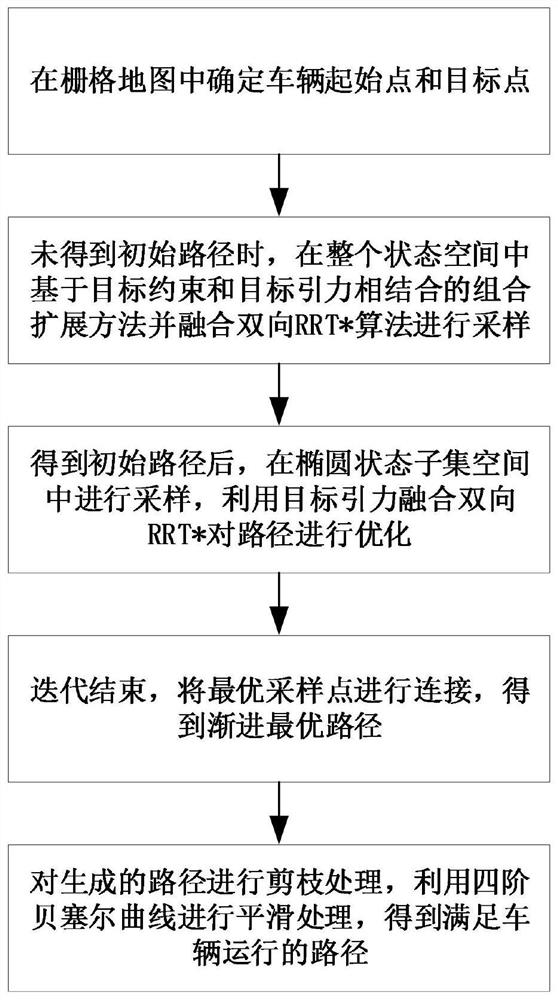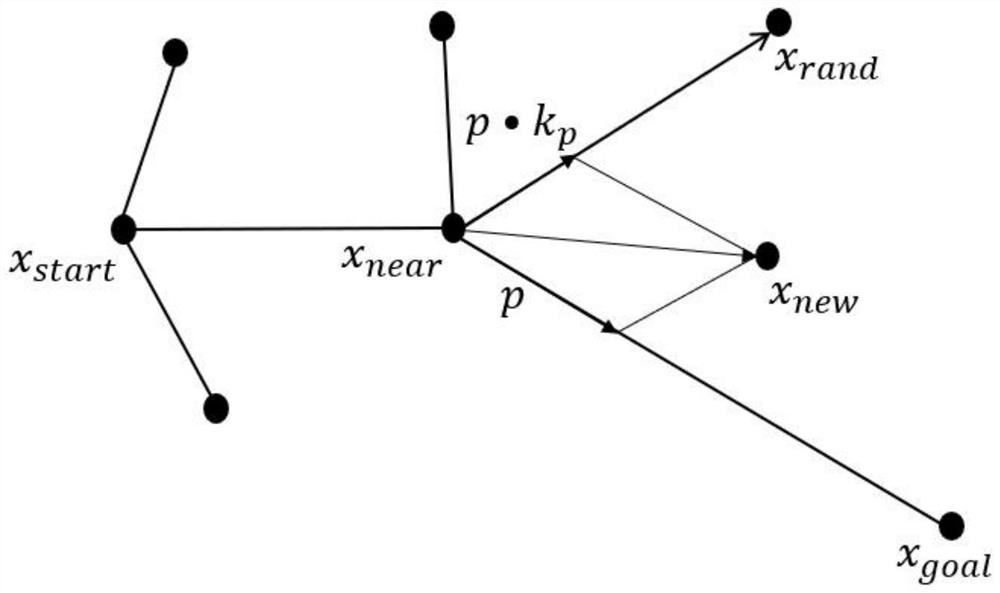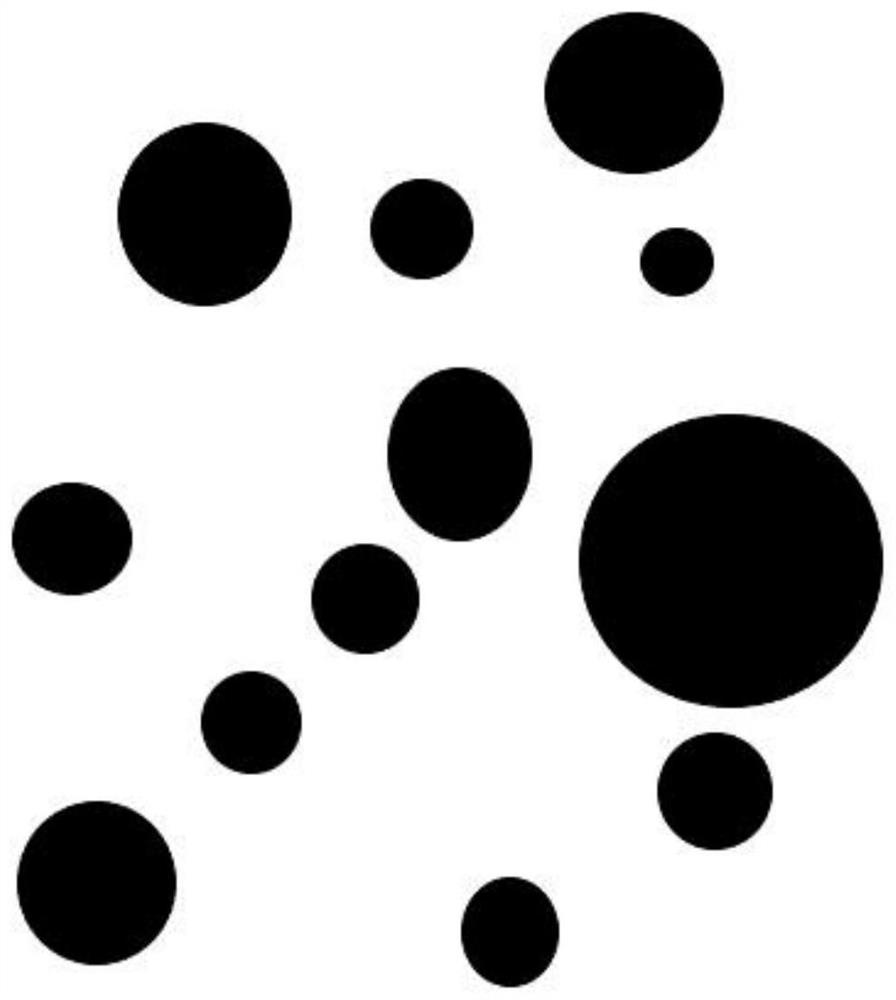Vehicle path planning method based on improved bidirectional informed-RRT*
A vehicle path and path technology, applied in vehicle position/route/altitude control, motor vehicle, two-dimensional position/flight control and other directions, can solve the problem that the vehicle cannot reach the target point, cannot meet the vehicle driving requirements, and waste search time. and other problems, to achieve the effect of high path planning efficiency, reducing time consumption and reducing randomness
- Summary
- Abstract
- Description
- Claims
- Application Information
AI Technical Summary
Problems solved by technology
Method used
Image
Examples
Embodiment Construction
[0061] In this example, if figure 1 As shown, a vehicle path planning method based on the improved two-way informed-RRT* includes the following steps:
[0062] Step 1. Use the vehicle's built-in lidar sensor or depth camera sensor to collect environmental information around the vehicle and use it to build a grid map. Mark each grid in the grid map as obstacle space or free space. After marking Choose a starting point x in the grid map of start and target point x goal ; image 3 and Figure 4 In , the black part is the obstacle space, and the white part is the free space;
[0063] Step 2. Use the combination expansion strategy combining target constraints and target gravity and integrate the traditional two-way RRT* algorithm to sample in the free space of the grid map to obtain the initial path;
[0064] Step 2.1, define two fast-exploring random trees Ta and Tb;
[0065] Step 2.2. Obtain a new node x of the fast-exploring random tree Ta new_a , to the target point x g...
PUM
 Login to View More
Login to View More Abstract
Description
Claims
Application Information
 Login to View More
Login to View More - R&D
- Intellectual Property
- Life Sciences
- Materials
- Tech Scout
- Unparalleled Data Quality
- Higher Quality Content
- 60% Fewer Hallucinations
Browse by: Latest US Patents, China's latest patents, Technical Efficacy Thesaurus, Application Domain, Technology Topic, Popular Technical Reports.
© 2025 PatSnap. All rights reserved.Legal|Privacy policy|Modern Slavery Act Transparency Statement|Sitemap|About US| Contact US: help@patsnap.com



